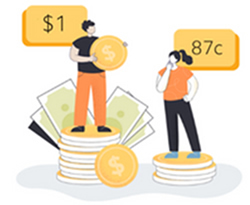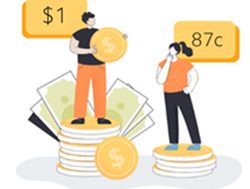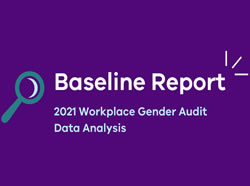 For the first time in almost 10 years Australia’s gender pay gap has not improved according to the Federal Workplace Gender Equality Agency’s (WGEA) biennial Progress Report.
For the first time in almost 10 years Australia’s gender pay gap has not improved according to the Federal Workplace Gender Equality Agency’s (WGEA) biennial Progress Report.
Director of WGEA, Mary Wooldridge said Progress Report 1 June 2020 – 31 December 2022 set out the progress of Australian employers against six key gender equality indicators.
Ms Wooldridge said that since reporting began in 2013-14, the gender pay gap in Australia had fallen from 28.6 per cent to 22.8 per cent and the proportion of women Chief Officers had increased five percentage points, with over one in five (22.3 per cent) companies reporting they had a female Chief Executive in 2021-2022.
“Importantly, nearly four in five employers (77.7 per cent) now have an overall policy or strategy in place to support gender equality, up 11.5 percentage points from 2013-14,” Ms Wooldridge said.
“The Report finds, however, that over the last two years progress is stalling and, for the first time, there was no reduction in the gender pay gap, with it remaining at 22.8 per cent,” she said.
“It indicates reform is needed to drive further growth.
Ms Wooldridge said there had been an increase in the proportion of employers conducting a gender pay gap analysis (from 46.4 per cent in 2019-20 to 54 per cent), but more than 40 per cent of companies were still failing to take any action as a result.
She said that while the current Workplace Gender Equality Act 2012 had enabled development of a world-leading gender equality dataset, the slowing pace of change signalled the need for a renewed approach.
“We are at a turning point in our work – and in the state of workplace gender equality in Australia,” the WGEA Director said.
“[This report] serves as an important tool for accountability and shows a need for a renewed approach that will ensure Australia remains a leader in gender equality.”
Ms Wooldridge said that reforms to be implemented by the Workplace Gender Equality Amendment (Closing the Gender Pay Gap) Bill 2023 (currently before Parliament) would help cement Australia’s leadership on workplace gender equality.
She said it included changes to enable WGEA to publish employer gender pay gaps and collect more detailed information related to sexual harassment and discrimination, employee data on age and location, and Chief Executive remuneration.
“Improved transparency and accountability will also better equip employees, and potential employees, with the information they need to make informed decisions about their own employment and improves their bargaining position,” Ms Wooldridge said.
WGEA’s 40-page Progress Report can be accessed at this PS News link.











